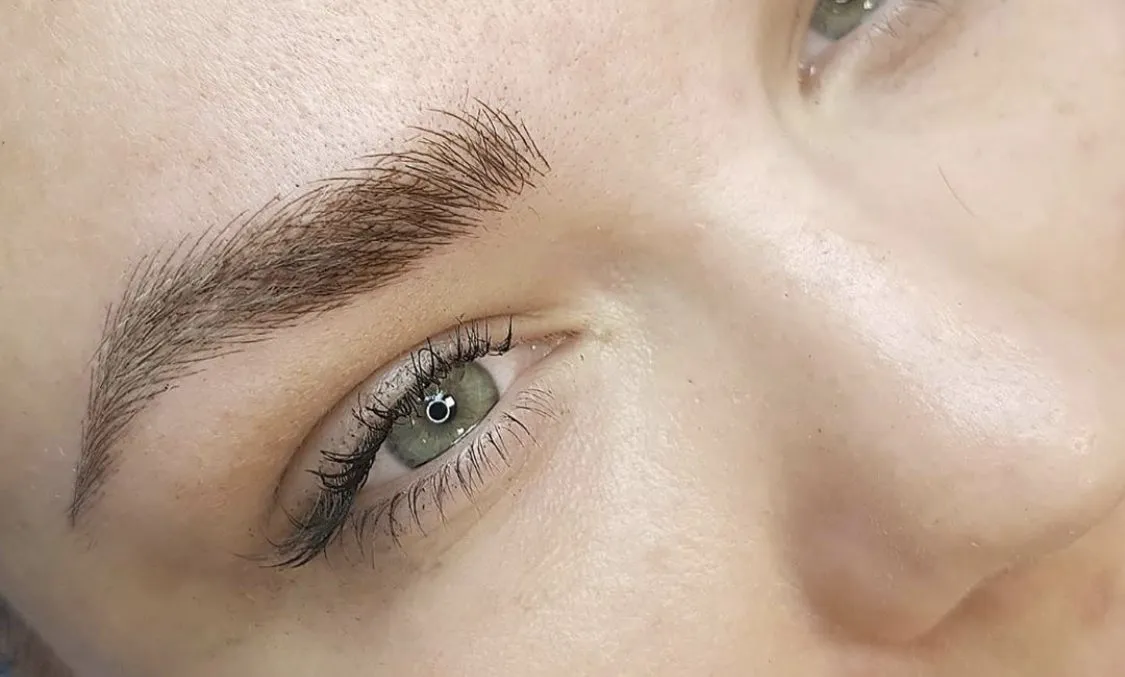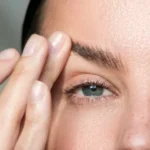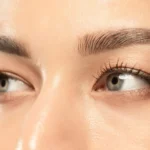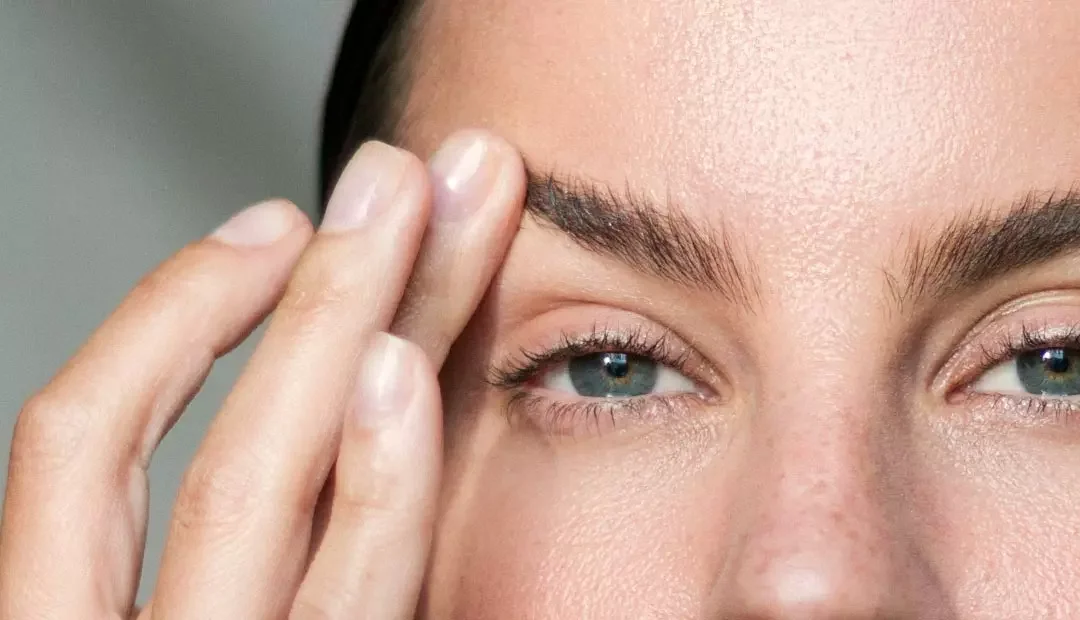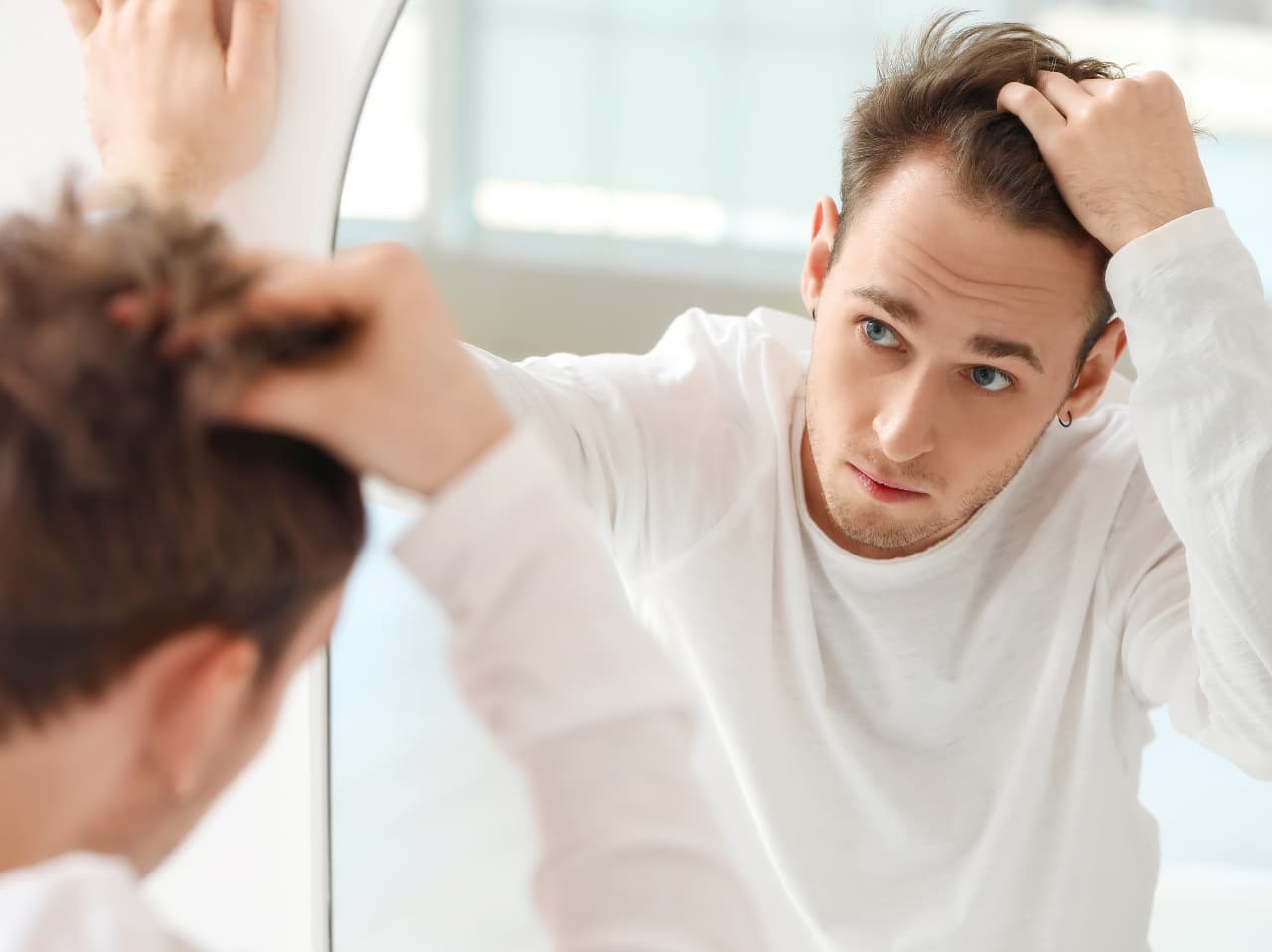Table of Contents
ToggleWhen embarking on a weight loss journey, achieving your health goals can be exciting. However, unexpected challenges such as hair loss can occur. Dr. Kopelman, a leading expert in hair restoration, explains that this phenomenon is more common than many realize and is often tied to rapid changes in the body. With over 35 years of experience, Dr. Kopelman offers insights into why hair loss happens during weight loss, how to prevent it, and effective treatments to restore your hairline.
Understanding the Link Between Weight Loss and Hair Loss
Why Does Weight Loss Cause Hair Loss?
Hair loss when losing weight often stems from physical stress on the body. Rapid weight loss, particularly through crash diets or calorie deficits, can trigger telogen effluvium, a condition where hair follicles enter the telogen phase prematurely.
This disrupts the normal hair growth cycle, leading to noticeable shedding. Dr. Kopelman emphasizes that sudden dietary changes or inadequate calorie intake can lead to hair loss, especially when essential nutrients are lacking.
Nutritional Deficiencies and Hair Loss From Dieting
Nutritional deficiencies are a leading cause of hair loss due to weight loss. The body prioritizes vital functions during calorie restriction, which can leave hair follicles deprived of essential nutrients. Common deficiencies include:
- Protein: Hair is primarily made of keratin, a protein. Insufficient protein intake weakens hair structure.
- Iron: Iron deficiency can lead to anemia, reducing oxygen supply to hair follicles and causing thinning.
- Zinc and Biotin: These nutrients play a crucial role in hair health and growth.
Hormonal Imbalances During Weight Loss
Hormonal changes triggered by weight loss, especially after weight loss surgery, can lead to hair thinning. Dr. Kopelman explains that fluctuations in thyroid hormones or estrogen levels can affect the hair growth cycle, amplifying hair loss symptoms.
Feel free to check out our related articles:
- Can mold Cause Hair loss?
- Berberine and Hair Loss
- Does exercise cause hair loss?
- Do energy drinks cause hair loss?
Recognizing Symptoms of Hair Loss
Hair Loss Symptoms in Women and Men
Experiencing hair loss during weight loss can look different for everyone. Common signs include:
- Increased shedding during brushing or showering.
- Thinning hair around the scalp or hairline.
- Bald patches in severe cases.
Why Is My Hair Falling Out When I Lose Weight?
Hair fall and weight loss are often linked to the body’s response to sudden changes. Stress from rapid weight loss or nutrient deficiencies can shock the hair growth cycle, causing more hairs to shed than usual. Dr. Kopelman advises monitoring your diet and lifestyle to identify potential triggers.
Signs of Health Issues Linked to Hair Loss
In some cases, hair loss may indicate underlying health concerns such as thyroid disorders, autoimmune diseases, or extreme calorie deficit. If shedding persists, consult a specialist to rule out serious conditions.
Preventing Hair Loss During Weight Loss
Diet and Hair Loss Prevention: Key Nutrients
To prevent hair loss from weight loss, focus on a balanced diet rich in:
- Lean Protein: Found in chicken, fish, eggs, and legumes.
- Iron: Available in red meat, spinach, and fortified cereals.
- Omega-3 Fatty Acids: Found in fish and nuts, these support scalp health.
- Vitamins D and E: Promote healthy hair follicles and reduce shedding.
How to Avoid Hair Loss From Calorie Deficits
Gradual weight loss is key to maintaining overall health. Avoid crash diets and ensure your calorie intake meets your basal metabolic needs.
Dr. Kopelman suggests consulting a dietitian to create a plan that supports both weight loss and hair health.
Stress Management and Hair Health
Stress contributes significantly to hair thinning during weight loss. Incorporate relaxation techniques like yoga, meditation, or regular exercise to reduce cortisol levels and improve overall well-being.
Will Hair Loss After Weight Loss Grow Back?
How Long Does Hair Regrowth Take?
Hair loss due to weight loss is typically temporary. Once the body stabilizes and nutrient levels are restored, hair follicles can re-enter the growth phase. Regrowth may take 3 to 6 months, depending on individual factors.
Can Thinning Hair Be Reversed Naturally?
Dr. Kopelman recommends nourishing your body with essential nutrients and avoiding further stressors. Natural remedies such as scalp massages with oils like rosemary or coconut may stimulate blood flow to hair follicles, encouraging regrowth.
Addressing Persistent Hair Thinning
If hair loss persists, advanced treatments may be necessary. Non-surgical options like platelet-rich plasma (PRP) therapy can help rejuvenate dormant follicles and promote growth.
Effective Treatments for Weight Loss-Related Hair Loss
Hair Loss Medication and Non-Surgical Solutions
Medications such as minoxidil or supplements like biotin can improve hair density. Non-surgical solutions, including PRP therapy, offer minimally invasive options for addressing thinning hair.
Advanced Hair Restoration Techniques
For severe cases, Dr. Kopelman provides cutting-edge restoration procedures like follicular unit extraction (FUE) and follicular unit transplantation (FUT).
These techniques ensure natural-looking results and help restore confidence.
Professional Treatments for Severe Hair Loss
Customized treatment plans tailored to individual needs can achieve long-term success. Dr. Kopelman’s expertise ensures that every client receives a personalized solution for their hair restoration journey.
When to Seek Professional Help
Recognizing Persistent Hair Loss Symptoms
If you’re experiencing hair loss after weight loss that doesn’t improve with diet and lifestyle adjustments, it’s time to seek professional help. Persistent symptoms may indicate deeper issues requiring specialized care.
When to Consult a Hair Loss Specialist
Dr. Kopelman recommends scheduling a consultation if hair loss continues for more than six months or worsens over time. Early intervention ensures better outcomes and prevents further thinning.
Tailored Treatment Plans for Lasting Solutions
At Kopelman Hair, clients receive a thorough evaluation and customized treatment plan. From dietary recommendations to advanced restoration techniques, every step is designed to help you regain your confidence and a fuller head of hair.
Weight Loss and Hair Loss: Final Thoughts
Hair loss during weight loss is a common side effect of rapid changes in the body. By understanding the causes and taking preventative measures, you can minimize the impact on your hair.
For those facing persistent issues, Dr. Kopelman offers expert guidance and state-of-the-art treatments to help you achieve both your weight loss and hair restoration goals.
A healthy body and a healthy scalp go hand in hand, and with the right approach, you can enjoy the best of both worlds.
By addressing conditions like alopecia and weight loss or concerns about rapid weight loss and hair loss, Dr. Kopelman helps patients navigate these challenges with confidence.
From understanding the connection between calorie deficit and hair loss to managing weight loss and hair thinning, his expertise ensures the best outcomes for restoring hair health.
Hair Transplant Solutions
For individuals experiencing significant hair thinning or balding, hair transplants offer a permanent solution. Techniques like follicular unit extraction (FUE) and follicular unit transplantation (FUT) ensure natural results.
Dr. Kopelman specializes in personalized hair restoration procedures, leveraging years of experience to provide patients with confidence and a rejuvenated appearance.
Frequently Asked Questions
Does weight loss cause hair loss?
Yes, weight loss can cause hair loss, particularly when it’s rapid or involves nutritional deficiencies that impact the hair growth cycle.
Can sudden weight loss cause hair loss?
Sudden weight loss can trigger telogen effluvium, a condition where stress forces hair follicles into the shedding phase prematurely.
How to stop hair loss due to weight loss?
To stop hair loss, focus on a balanced diet, gradual weight loss, and addressing any nutrient deficiencies. Consulting a specialist can help with tailored solutions.
Why do you lose hair when you lose weight?
Hair loss during weight loss is often due to physical stress, hormonal changes, or inadequate intake of essential nutrients like protein and iron.
How to prevent hair loss during weight loss?
Prevent hair loss by maintaining a nutrient-rich diet, avoiding crash diets, and managing stress levels. Gradual weight loss minimizes the risk of hair shedding.



